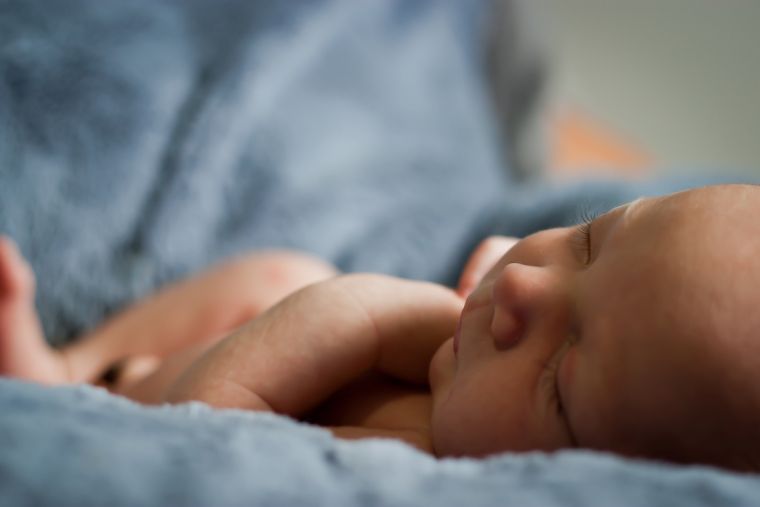Why most women are not happy with the status quo on abortion, and why this matters

We are living in an era in which if we only listen to certain 'pro-choice' and pro-abortion voices it would be easy to believe the claim that abortion is an amoral choice that should be available to us as autonomous beings.
We are told that the main problem women in pregnancy crisis are facing is that they can't have an abortion when they want it. We are encouraged to stop wondering about the morality of the intentional ending of unborn human life, with arguments that describe a fetus as no more a child than a ball of wool is a jumper.
As Christ followers we have a duty to form our opinion on any life and death issue using our Spirit inspired understanding of scripture. God has a lot to say about life, humanity and personhood, and about who has authority over life and death. But these truths are to be viewed and held in light of God's character and our created purpose.
Our biblical understanding should be combined with scientific and medical developments, and applied with the common sense and humanity we have from our lived experience as women and men who know what a pregnancy is and what it results in.
So often we can feel muzzled from questioning the message of the culture that surrounds us, because to do so would suggest that we are misogynistic dinosaurs, out of step with modern society. In short, we don't trust women.
But according to a new survey, it is those calling for ever more abortion who are in the minority. ComRes, commissioned by Where do they Stand? carried out the most extensive representative polling on attitudes to abortion in Great Britain in a decade. More than 2000 people were asked a range of questions on the issues of support and care services in pregnancy, and abortion access. The survey revealed that the dominant narrative we hear in the media about abortion is not reflected in the views of women in the wider population. The results are timely because this year marks 50 years since the 1967 Abortion Act was introduced. Since then more than eight million abortions have been performed, one in three women will have an abortion by age 45 and today for every four children born, one has been aborted.
The responses are significant because they reveal that most women in England, Wales and Scotland are not happy with the status quo.
These results indicate that women want better support for women facing pregnancy crisis; that women want pregnancy crisis counselling independent of the abortion provider; are in favour of a waiting period between a counselling appointment and the abortion procedure; want parental involvement when an underage girl faces an unplanned pregnancy; and the involvement of doctors as a safeguard against coercion. Most women want the upper age limit on abortion reduced and they want equality for girl babies and babies diagnosed with special needs.
In short women want better for women than more abortions. Most women recognise the value in unborn life and that they face pregnancy crises for all sorts of reasons, meaning that they need more from friends, family and society than their tacit trust.
It is inexcusable that the extension of women's rights has been indissolubly linked with the erosion of the right to life of our unborn children. This is not progress, freedom or equality – quite the opposite. To stand in solidarity with women in their pregnancy means more than offering to 'Trust Women'. Women should never have to choose between their children and their relationships, their education or their career. The solution to discrimination against women should not be more discrimination against a different, more vulnerable, group – the unborn.
While it is common for Northern Ireland to be portrayed as backward for its tightly-defined law on abortion, as a society we are much closer to the definition of family planning set out by the UN as a human right. The Cairo Convention (1994), says that abortion is not to be promoted as a method of family planning. It says, in fact, that good family planning is integral to ensuring that there is no need for recourse to abortion.
Unlike the rest of GB perhaps we in Northern Ireland have been 'cushioned' from the impact of pro-abortion policies and their inevitable outworking. As this polling shows, it has not led to best care for women and unborn children.
Opinion polls are interesting but can swing and change. If we believe that the lives of unborn children and women really matter then we must work to deliver services and create a culture that enables life-affirming choices. Our guiding principle is simple, biblical and good for everyone in society – both lives matter.
Dawn McAvoy Dawn works for the Evangelical Alliance in Northern Ireland and is a spokeswoman for the Both Lives Matter campaign. Both Lives Matter is a collaborative campaign of individuals and organisations in Northern Ireland advocating for better services, a life-affirming culture and the retention of the present law which seeks to protect the lives and health of both women and unborn children. On Twitter @McAvoyDawn and @EANInews.











